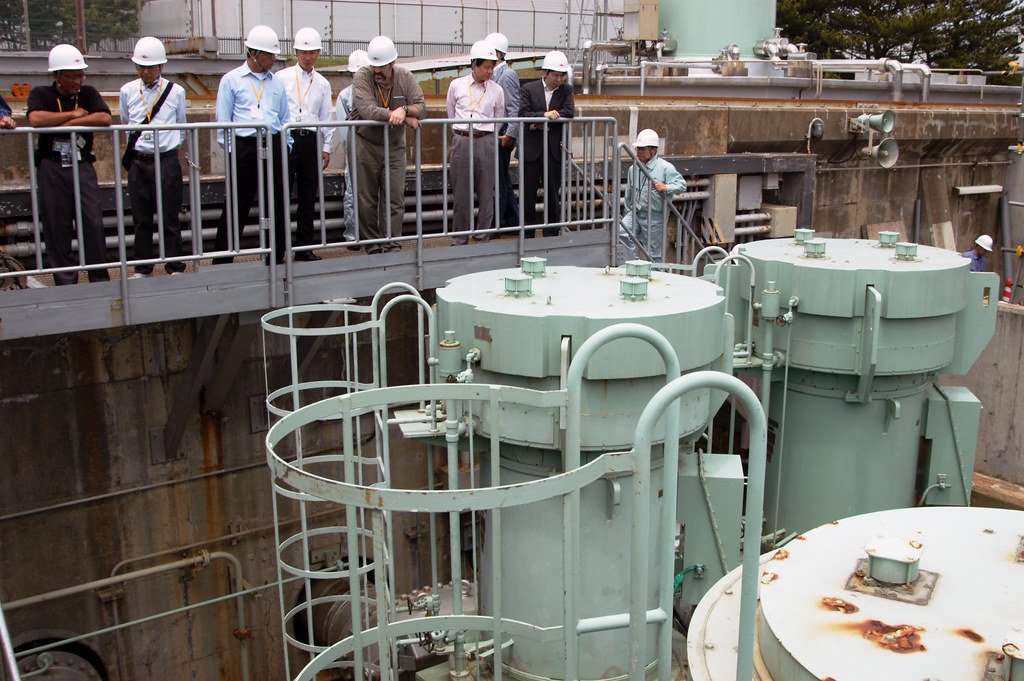China’s Salt Demand Surges Amidst Fukushima Water Discharge Concerns
In the wake of Japan’s recent decision to release treated radioactive water into the Pacific Ocean from the damaged Fukushima nuclear plant, Beijing’s largest salt producer, the state-run National Salt Industry Group, has made a pressing call to the public: avoid panic buying.
This call for restraint comes on the heels of a widespread reaction in China, where concerns about the safety of the discharged water have led to an unexpected and substantial surge in salt demand. The nuclear incident at Fukushima and its aftermath have been the subject of intense scrutiny, debate, and diplomatic tension for years. With Japan’s latest move, which came despite China’s stark opposition, the ripple effect has been felt acutely in unexpected sectors, like that of salt production and supply.
Rising Demand and Empty Shelves
For many, salt is simply a kitchen staple. However, in the hours following Japan’s announcement about the water discharge, this humble mineral became a sought-after commodity. Reports emerged from various parts of China, particularly prominent cities such as Beijing and Shanghai, indicating that panic buying had led to emptied supermarket salt shelves. Even online platforms, which have traditionally been reliable outlets for continuous supply, saw their salt stocks rapidly depleting.
These developments raised eyebrows, prompting immediate action from the National Salt Industry Group. As the world’s leading common salt producer, the organization found itself at the epicenter of this unexpected surge in demand.
Reassuring the Public
In a bid to assuage public concerns and regulate the market, the National Salt Industry Group swiftly issued a statement. “We are working overtime to produce, distribute and making all efforts to guarantee market supply,” the statement read, a testament to their commitment to ensuring that citizens’ needs are met without undue strain on the supply chain.
Furthermore, the statement sought to clarify misconceptions and educate the public, urging them to purchase rationally. “Please purchase rationally and do not panic buy blindly,” the group advised, highlighting the importance of informed decisions over reactionary behavior.
In an effort to further put the public’s concerns to rest, the group provided some insightful statistics. Notably, they emphasized that sea salt, which could be a potential concern given its origin, constitutes a mere 10% of the salt consumed by the public. The remaining 90% is derived from well and lake salts. Such sources are virtually insulated from the kind of contamination fears arising out of the Fukushima water discharge.
It was also reassuringly mentioned that the current shortages in salt supply are projected to be short-lived. With its robust production capabilities and responsive approach, the National Salt Industry Group expressed confidence in its ability to quickly restore equilibrium to the market.
The Diplomatic Backdrop
This surge in salt demand is emblematic of a larger narrative – the diplomatic tensions between China and Japan over the Fukushima incident. China has consistently voiced its concerns over Japan’s actions, specifically challenging the assurance that the discharged water is safe. This apprehension led to a significant move by China, where they banned the import of all aquatic products from Japan.
Japan, for its part, has defended its decision staunchly. They’ve criticized China for allegedly propagating “scientifically unfounded claims.” Bolstering their stance is the support from the International Atomic Energy Agency (IAEA). The IAEA, a prominent international body, has concluded that the potential impact of the water release on both human health and the environment would be “negligible.”
In Conclusion
The Fukushima incident and Japan’s subsequent decisions surrounding it have far-reaching implications, extending beyond environmental and diplomatic realms to even touch sectors as seemingly unrelated as salt production. The recent events in China underscore the interconnectedness of global events and local markets. It also sheds light on the importance of swift organizational response, public communication, and the need for informed decision-making in times of potential crises.
In the days and weeks to come, as the situation around the Fukushima water discharge continues to evolve, the hope is for informed discourse, collaborative international efforts, and a commitment to safety and transparency from all parties involved.
Read More:
